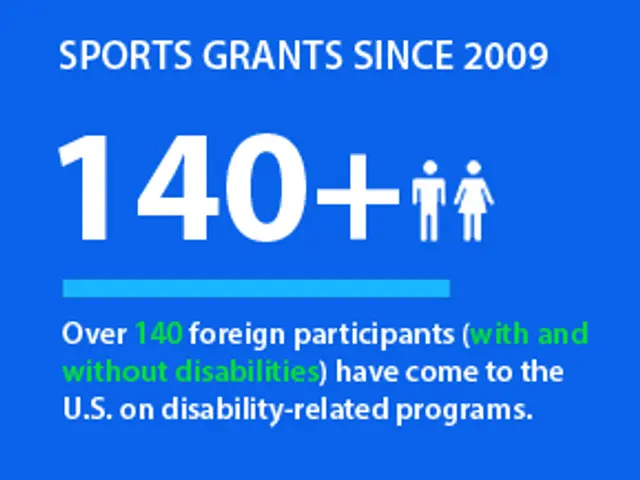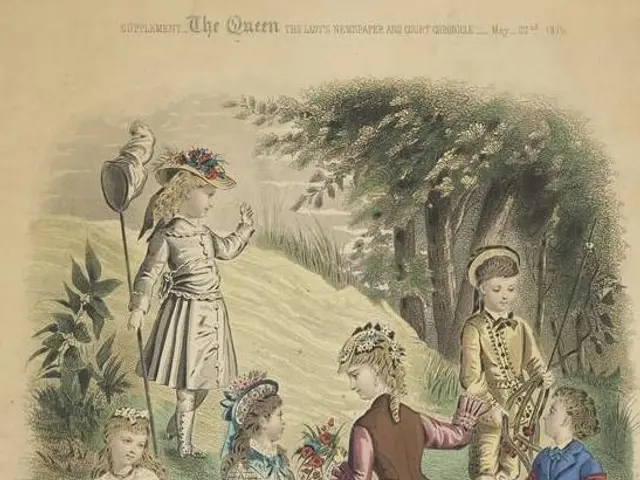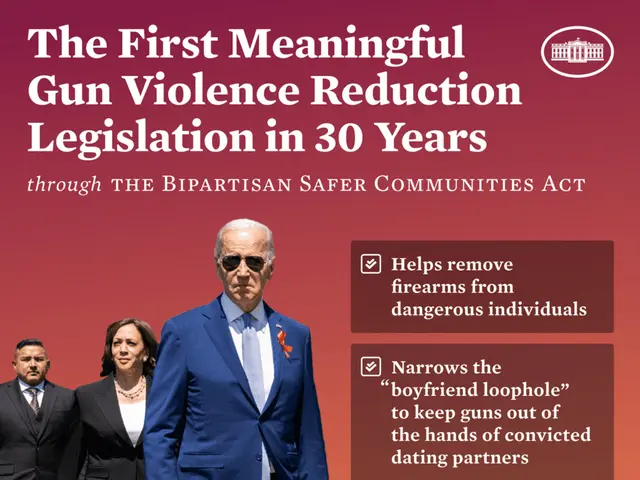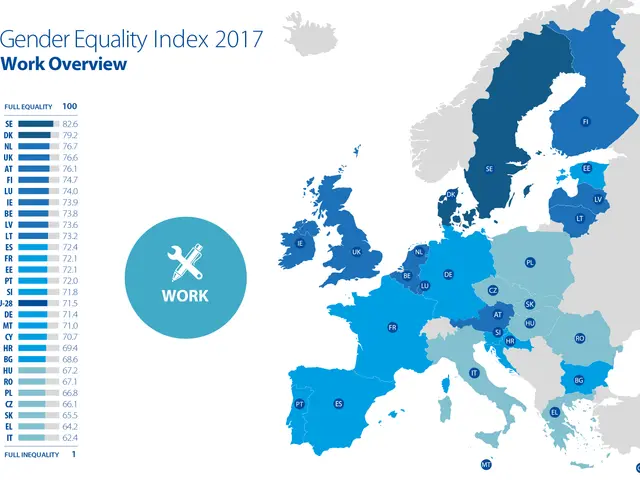Escalating Measles Outbreaks Over the Next Quarter-Century in the U.S., Potentially Affecting Millions, if Vaccination Rates Decline
The United States could witness a catastrophic surge in measles, rubella, poliomyelitis, and diphtheria cases over the next 25 years if vaccination rates decline, according to research from Stanford University. This is a grim scenario, especially with the rise of anti-vaccine sentiments and misinformation that have seeped into the highest levels of government.
The simulation model produced by the researchers depicts a particularly alarming scenario in which a 50% drop in childhood vaccinations could cause a staggering 51.2 million measles cases over a 25-year period. This would be accompanied by 9.9 million cases of rubella, 4.3 million cases of poliomyelitis, and 197 cases of diphtheria. This disaster would result in a daunting 10.3 million hospitalizations and 159,200 deaths.
A less extreme but still troubling situation arises when considering a scenario where vaccination rates remain consistent with the year 2025. The next 25 years would still see over 850,000 cases in the U.S., according to the model.
Even a mere 10% drop in MMR immunization rates could lead to a significant increase in measles infections, with around 11.1 million cases predicted over the subsequent 25 years. Conversely, a 5% rise in vaccinations would bring the number of U.S. cases down to just 5,800. To achieve herd immunity for measles, the population needs a vaccination rate of about 95%. The researchers estimate current vaccination coverage in their models at between 87.7% and 95.6%.
State-wise immunization rates vary. For instance, in the 2023-24 school year, New York had an estimated childhood vaccination rate of 97.7%, whereas Idaho's rate hovered at a mere 79.6%.
Before the introduction of the measles vaccine in 1963, around 3-4 million Americans contracted measles annually, and tens of thousands were hospitalized. Approximately 400-500 people died from the disease each year, with death being only one downside of measles. It also causes "immune amnesia," weakening the immune systems of infected patients and making them vulnerable to other infections.
The U.S. is currentlyExperiencing its worst measles outbreak in a quarter century, with at least 800 cases reported in 25 states. As of Thursday, Illinois has reported its first confirmed measles case. This outbreak has already claimed three lives/In the U.S: two children in Texas and an adult in New Mexico.
The grieving parents of a 6-year-old girl who died from measles on February 26 stood by their decision not to vaccinate her, asserting that four of their other unvaccinated children remain healthy. Similarly, the father of an 8-year-old girl who passed away on April 3 defended his decision not to vaccinate his daughter, claiming her death was not measles-related and was due to poor hospital care.
Both parents are part of Children's Health Defense, a fringe anti-vaccine group that spreads false claims about vaccines causing autism. Robert F. Kennedy Jr., current head of the Department of Health and Human Services, served as chair of the organization until 2023. Regrettably, this does not leave much room for optimism regarding improving MMR vaccination rates in the coming years.
In fact, Kennedy recently declared that he would disclose the "cause" of autism by the fall. He leads the Make America Healthy Again (MAHA) movement, a team of scientists dedicated to unraveling the so-called "autism epidemic." Kennedy has also reportedly been working on a database containing private health records of Americans, according to NPR.
Kennedy's recent speech was marked by comments that severally autistic people don't lead active social lives or contribute to the economy through paying taxes. He also suggested that many modern diseases are either new or hadn't been recognized when he was a child, attributing their emergence to strategic causes such as food dyes or other mysterious factors.
It's crucial to remember that the reason Kennedy may not have encountered these diseases during his childhood is due to better diagnosis, treatment, and awareness, rather than their creation or emergence at a later time. One significant example is Kennedy's own aunt, Rosemary Kennedy, who was institutionalized and lobotomized in the early 1940s following her birth complications and erratic behavior. Her existence remained a secret for decades, and her father never visited her. Her mother went 20 years without seeing her.
It's alarming to see officials with anti-science views and a focus on eugenics discussing public health in the United States, particularly when they are also compiling lists of individuals deemed ineligible for military service or tax payment. Their actions could put millions of innocent people at risk by promoting anti-vaccine sentiments.
Unfortunately, with President Donald Trump in office for another four years (despite suggestions that he plans to remain beyond that), the road to improved public health and vaccination rates in the U.S. appears long and arduous.
- Science and technology have a vital role to play in predicting the potential health crisis due to declining vaccination rates.
- The research from Stanford University highlights the future danger of measles, rubella, poliomyelitis, and diphtheria if vaccination rates decline.
- The rise of anti-vaccine sentiments and misinformation in government poses a significant threat to public health.
- The simulation model produced by the researchers depicts a catastrophic scenario with a 50% drop in vaccinations causing millions of measles cases.
- Health-and-wellness professionals are concerned about the potential impact of anti-vaccine sentiments on mental-health, particularly among parents.
- In 2023, migration patterns might be affected by health concerns due to the potential rise in measles, rubella, poliomyelitis, and diphtheria cases.
- Education-and-self-development institutions should incorporate health and vaccination-related information into their curriculum to combat misinformation.
- Personal-growth and self-development can be achieved by setting goals related to advancing health policies and promoting vaccination.
- War-and-conflicts can arise when resources are diverted from health care to conflicts due to the strain on public health systems caused by preventable diseases.
- Career-development strategies should include engaging in policy-and-legislation to promote vaccination and improve public health.
- Car-accidents, fires, and other accidents can claim more lives if the healthcare system is overwhelmed by preventable diseases caused by declining vaccination rates.
- Politics plays a crucial role in shaping vaccination policies and has a substantial impact on public health.
- Job-search efforts in the medical field will likely increase as the demand for medical professionals to combat preventable diseases rises.
- The general-news media should prioritize accurate reporting on health issues and the importance of vaccinations.
- Crime-and-justice systems may face additional pressures if they have to deal with an increase in preventable diseases caused by declining vaccination rates.
- Goal-setting for sports teams can include prioritizing vaccinations to protect players and promote overall health and wellness.
- Skills-training programs can incorporate education on the importance of vaccinations and the impact of preventable diseases on sports performance.
- American football, whether NFL, NCAA Football, or sports-betting, should endorse vaccine awareness campaigns and encourage players to get vaccinated to protect themselves and their teams.








